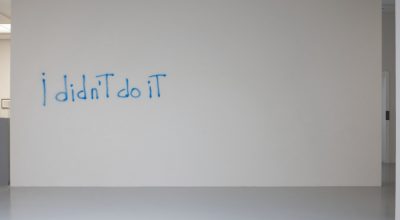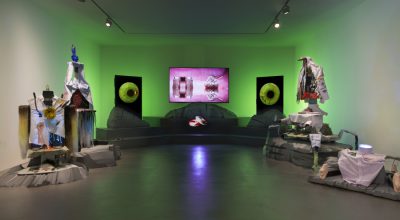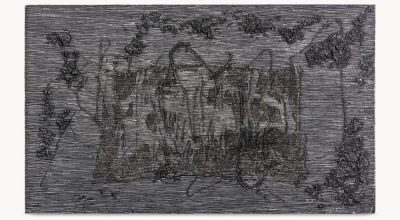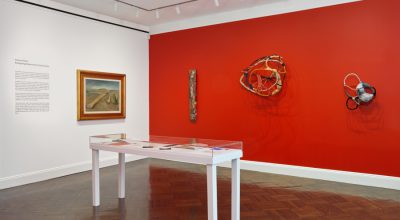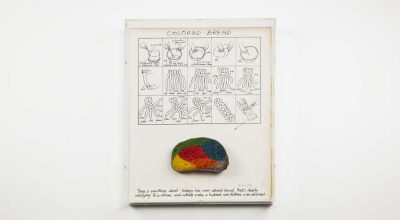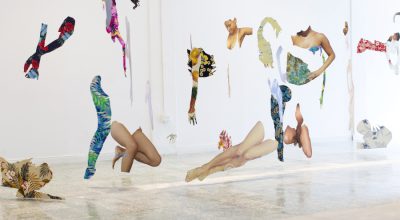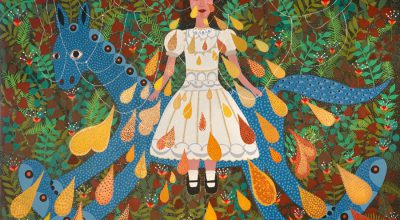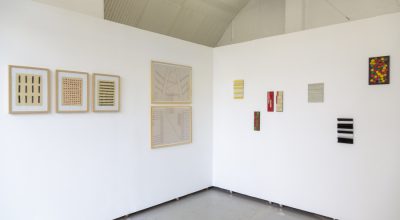English
CARIBBEAN FUTURE. CONVERSATION WITH MARÍA ELENA ORTIZ
Taking into account the number of Caribbean exhibitions focused on past and present histories, «The Other Side of Now: Foresight in Contemporary Caribbean Art» curated by María Elena Ortiz and Marsha Pearce at the Pérez Art Museum Miami (PAMM) approaches the Caribbean as an experiment of possibilities based on time. From the question “what might a Caribbean future look like?” fourteen artists were invited to develop works that challenge the imaginary of exuberance, primitivism, sexuality, tropical paradise and catastrophe, that have defined the region. In this interview, we talked with María Elena Ortiz (Puerto Rico, 1984) about her curatorial trajectory, visibility platforms, and Caribbean future in the exhibition context.
ROBERTO BOLAÑO’S ANTWERP. AN EXHIBITION INSPIRED BY A NOVEL, A CITY AND A SCENE
In «Antwerp», detectives, victims, artists, alter-egos and vagabonds inhabit an enigmatic story. Bolaño thematises contemporary reality expressed through topics such as crime and corruption, sexual violence, relative truth, memory and erasure, marginality and urbanism, the male gaze, and the sea as a metaphor, all of which resonate with the history and reality of Antwerp. It is the structure, themes and character archetypes of Antwerp that M HKA takes its inspiration from as modes of reflection in this exhibition, titled «Amberes» – referring to the book’s title in its original Spanish.
PATRICIA DOMÍNGUEZ: GREEN IRISES
Chilean artist Patricia Domínguez explores healing practices emerging from the points where many worlds meet, clash and overlap as a result of colonial encounters. Rooted in the artist’s ongoing investigation of ethnobotany in South America, her first UK solo exhibition invites the viewer to envision possible futures for humans and plants thriving in the cracks of modernity.
Soto.vibrations 1950–1960
Renowned as art history’s leading kinetic artist, Jesús Rafael Soto (Venezuela, 1923-2005) explored the dematerialization, or ‘disintegration’ of the art object, breaking new ground while anticipating conceptual strategies to come. Hauser & Wirth in New York presents «Soto. Vibrations 1950 – 1960», the first exhibition to focus on the critical first decade of the artist’s life in Paris, curated by Jean-Paul Ameline. Imbued with vibration and movement, Soto’s early works constitute a breakthrough in his output, laying crucial groundwork for his later kinetic works and the uniquely fluid style that shaped his artistic vocabulary.
Visions of Brazil:reimagining Modernity From Tarsila to Sonia
«Visions of Brazil: Reimagining Modernity from Tarsila to Sonia» positions works by Brazilian Modernists (such as Tarsila do Amaral and Alfredo Volpi) alongside others made by artists working outside of Modernism’s canonical time bracket (Sonia Gomes, Leonilson), allowing us to deconstruct what Modernism may stand for; and by rooting this rereading in politics, race, and class, we may support a visual narrative of Brazilian Modernism suspended on diversity and equality.
Miralda:unpacking The Archive
Henrique Faria New York presents «Unpacking the Archive», the first solo exhibition of the Catalan artist Miralda (1942, Terrassa, Spain) in the gallery and his first in New York City since 1991. This exhibition takes as its starting point the recently made works Marianne B and Marianne M (2017), which serve as visual repositories for the artist’s career to date and feature elements –in the form of figurines, ephemera and other archival materials in plexiglass boxes– that bring the constellation of Miralda’s various projects and installations more clearly into focus.
Resisting Paradise
Though geographically close, Caribbean artists are often unable to travel and show within the region. Intra-regional exchange is challenged by variations in language and colonial history, while flight routes prioritize the convenience of visitors coming from the United States or Europe, mirroring the migration patterns of many post colonial subjects. «Resisting Paradise» presents an opportunity to establish a much needed regional dialogue. The exhibition features works by Deborah Anzinger, Leasho Johnson and Joiri Minaya, showing how Caribbean artists are taking control of the narratives and images that convey ourselves to others. The artists, hailing from Jamaica and the Dominican Republic and its diasporas, work at the intersections of tourism, sexuality, gender, environmental concern, music, and the internet.
Gerardo Rosales:looking For a Hero or Whips, Whims, And Wigs And Gio Ponti is Just an Excuse
In his recent works, Rosales exposes issues of social inequality experienced by immigrants coming from Latin America in search of a better life in The United States. An immigrant himself, Rosales moved to Houston from his native Venezuela 19 years ago. Rosales’s art appropriates aesthetic genres associated to folk art and geometric abstraction to call attention on issues of class, race and gender, at times with biting humor, while other times with loaded, painful drama.
ANDRÉS PEREIRA PAZ: RADIO CARABUCO
The exhibition project «Radio Carabuco» at Künstlerhaus Bethanien has evolved from the podcast station of the same name created by Bolivian artist Andrés Pereira Paz (b.1986, La Paz). The starting point is the artist’s critical reflections on a vision of hell produced by the painter José López de los Ríos, created in 1664, in the town of Carabuco in Bolivia. This painting, commissioned by the Catholic church, can still be seen in Carabuco’s church on the shores of Lake Titicaca in La Paz.
Sheroanawe Hakihiiwe & Luis Romero:venezuelan Pavilion
This year, the Venezuelan Pavilion failed to open its doors to the public during the preview days of Venice Biennale amongst the political turmoil that has taken over the country since the beginning of 2019. Unintentionally, the closed pavilion became a powerful metaphor for the devastating effect of twenty years of disastrous cultural policies in the country -not to mention numerous other government policies that have led to the current humanitarian crisis. As a response to this episode, Kupfer invited Venezuelan artists Luis Romero and Sheroanawe Hakihiiwe to stage their own guerrilla pavilion in East London.


